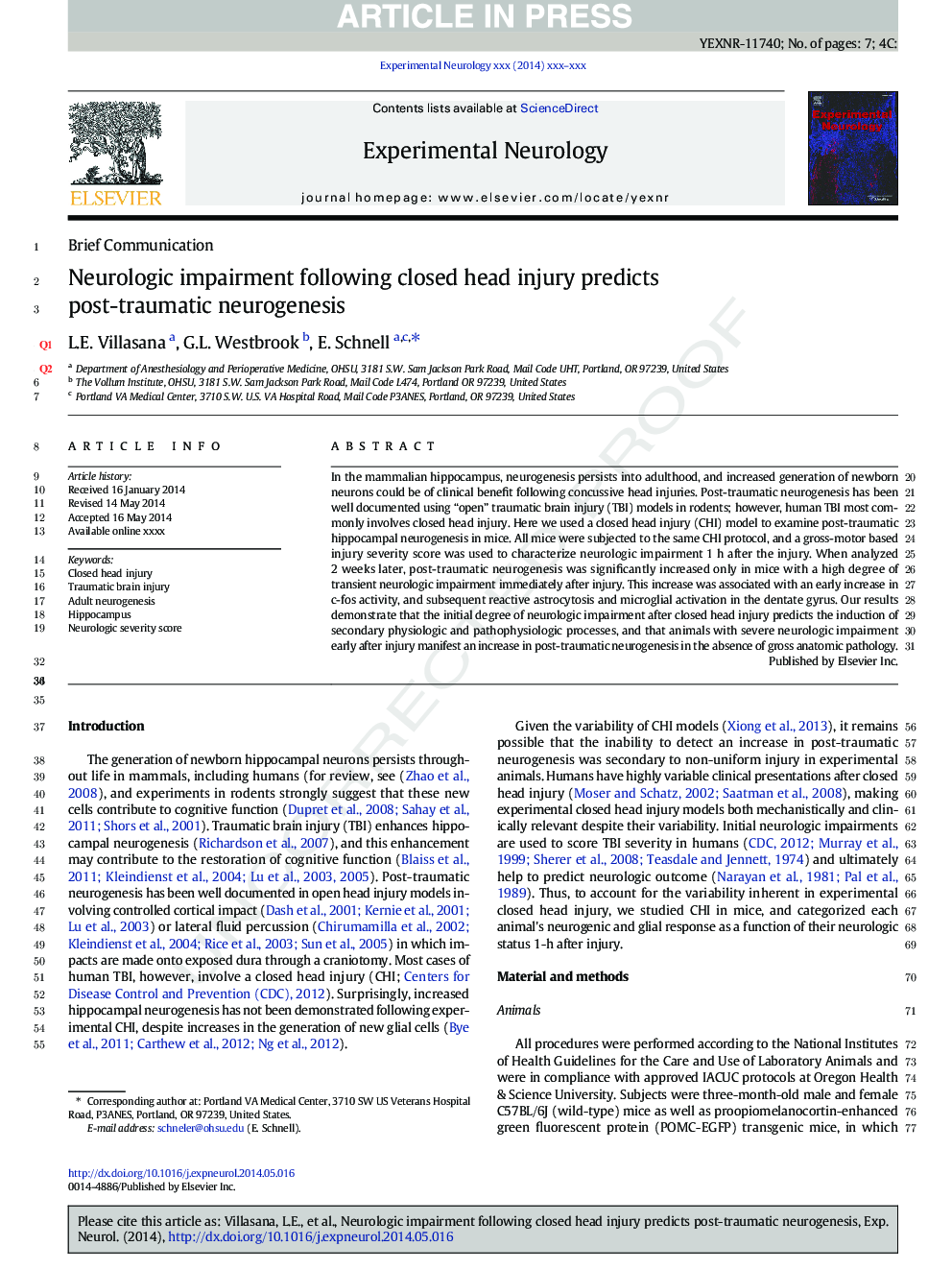| Article ID | Journal | Published Year | Pages | File Type |
|---|---|---|---|---|
| 6017742 | Experimental Neurology | 2014 | 7 Pages |
Abstract
In the mammalian hippocampus, neurogenesis persists into adulthood, and increased generation of newborn neurons could be of clinical benefit following concussive head injuries. Post-traumatic neurogenesis has been well documented using “open” traumatic brain injury (TBI) models in rodents; however, human TBI most commonly involves closed head injury. Here we used a closed head injury (CHI) model to examine post-traumatic hippocampal neurogenesis in mice. All mice were subjected to the same CHI protocol, and a gross-motor based injury severity score was used to characterize neurologic impairment 1Â h after the injury. When analyzed 2Â weeks later, post-traumatic neurogenesis was significantly increased only in mice with a high degree of transient neurologic impairment immediately after injury. This increase was associated with an early increase in c-fos activity, and subsequent reactive astrocytosis and microglial activation in the dentate gyrus. Our results demonstrate that the initial degree of neurologic impairment after closed head injury predicts the induction of secondary physiologic and pathophysiologic processes, and that animals with severe neurologic impairment early after injury manifest an increase in post-traumatic neurogenesis in the absence of gross anatomic pathology.
Related Topics
Life Sciences
Neuroscience
Neurology
Authors
L.E. Villasana, G.L. Westbrook, E. Schnell,
